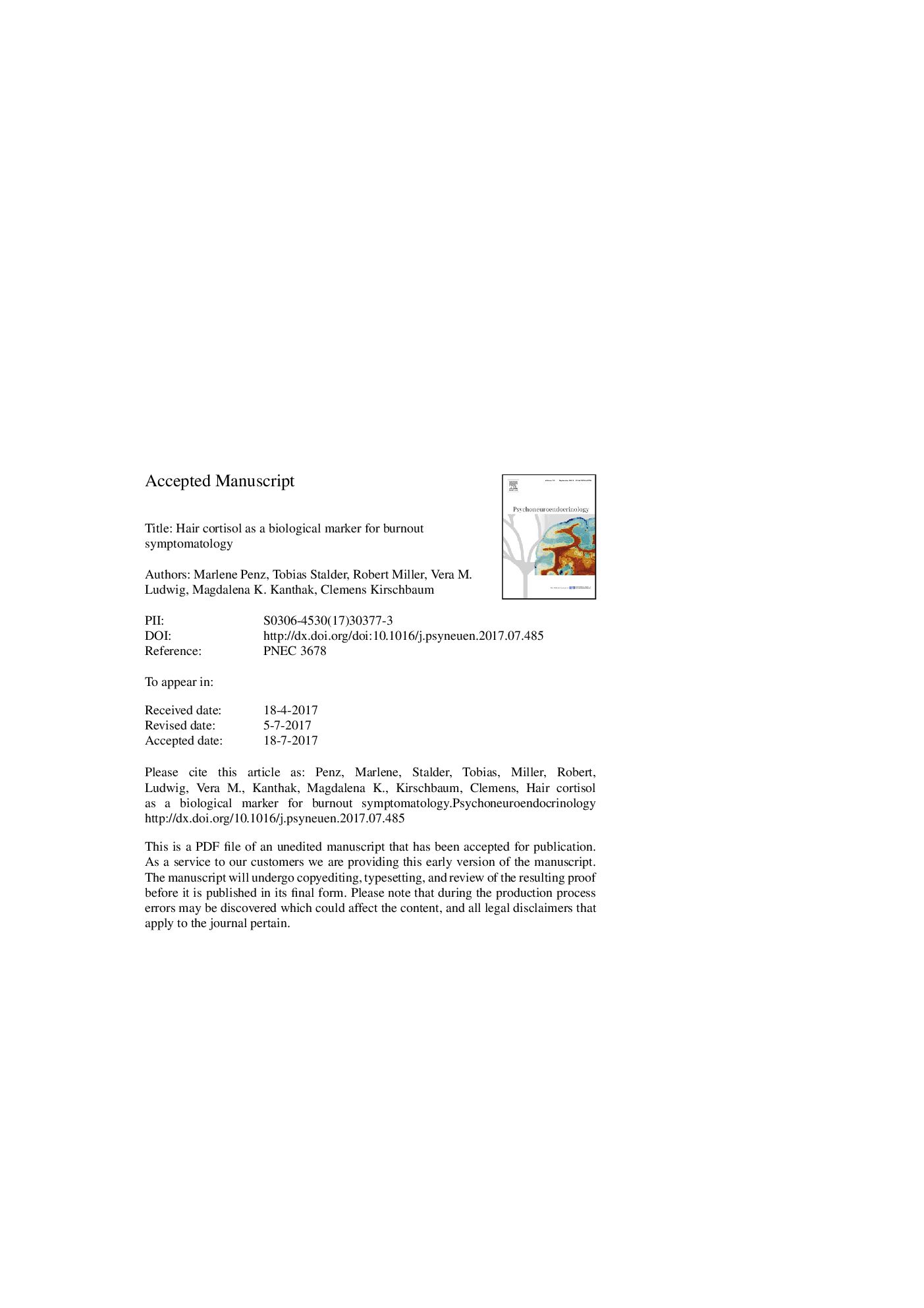| Article ID | Journal | Published Year | Pages | File Type |
|---|---|---|---|---|
| 6817861 | Psychoneuroendocrinology | 2018 | 12 Pages |
Abstract
Burnout is a syndrome with negative impact on cognitive performance and mood as a consequence of long-term stress at work. It is further associated with increased risk for mental and physical diseases. One potential pathway to mediate chronic work-stress and adverse health conditions in burnout is through alterations in long-term glucocorticoid secretion. Here, we present cross-sectional data on hair cortisol/cortisone (hairF/hairE) concentrations and burnout from a population-based sample of the Dresden Burnout Study (DBS; NÂ =Â 314 hair samples). Burnout symptoms (emotional exhaustion, cynical attitudes toward work, and reduced efficacy) were assessed with the Maslach Burnout Inventory-General Survey (MBI-GS). To control for potential confounds, depressivity was as well assessed using the Patient Health Questionnaire (PHQ-9) screening instrument for major depression. The present findings indicate specific hypercortisolism in participants who suffer from burnout. No significant associations were found between depressivity and hairF/hairE.
Related Topics
Life Sciences
Biochemistry, Genetics and Molecular Biology
Endocrinology
Authors
Marlene Penz, Tobias Stalder, Robert Miller, Vera M. Ludwig, Magdalena K. Kanthak, Clemens Kirschbaum,
